20 Ways a Sunburn Harms Your Overall Health
After the redness fades and the peeling stops, the real problems begin.
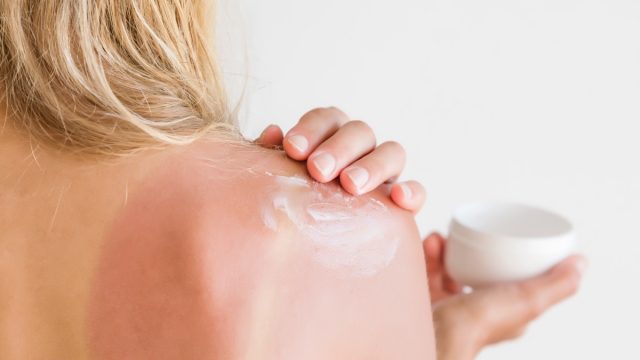
Summer means backyard barbecues, pool parties, sunny days that stretch into the evening—and, if you're not careful, sunburns. Sure, we all know we should be wearing sunscreen every day, in all seasons, but who hasn't skipped the sun protection now and then? Or forgotten to reapply after a dip in the ocean? A sunburn can lead to some obvious damage, like redness and peeling skin, but it can have much more serious, long-lasting consequences as well. A sunburn is more than just an inconvenience—it's a serious health issue. We rounded up the twenty most insidious side effects. Read on to find out about some unexpected ways a sunburn harms your health.
READ THIS NEXT: New "Highly Contagious" Skin Infection Is Spreading, CDC Warns—How to Stay Safe.
1
It can give you a headache.
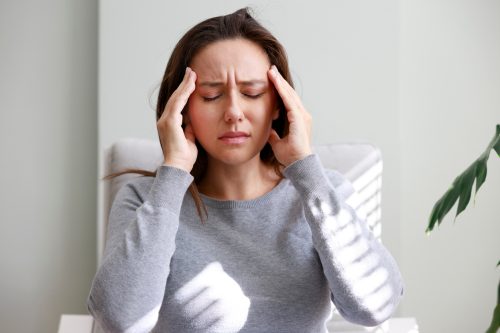
If you already suffer from headaches or migraines, then overexposure to the sun is likely to make it worse. And even if you aren't inflicted with mind-numbing migraine pain on a regular basis, sun glare and sun poisoning are known to cause headaches, according to the Mayo Clinic. Their experts advise seeing your healthcare provider if you experience "worsening pain, headache, confusion, nausea, fever or chills" after getting burned.
2
It can make your tongue swell.

Your lips are made of skin, so naturally, they can get sunburnt too. And when that sunburn is severe, it can lead to swelling of the tongue, blistering, and difficulty breathing. Luckily, several brands make lip balms with SPF protection, so we can keep our lips healthy (and hydrated) all season long.
3
It ages your skin.
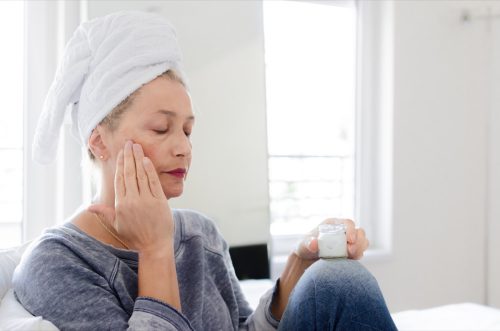
Women and men alike spend hours a week looking for the ultimate anti-aging cure, but few stop to consider the long-lasting effects of the sun on their skin. When we get sunburned, we are hurting cells called fibroblasts that produce collagen, leaving our skin defenseless against wrinkles and other damage.
4
It makes you itchy beyond belief.
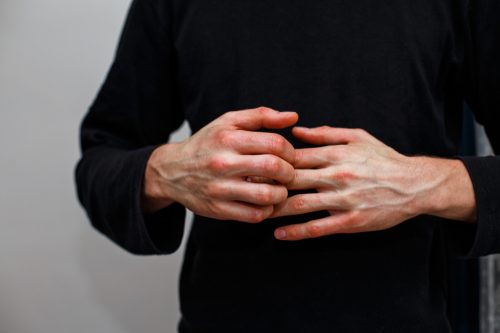
In rare instances, a bad sunburn can lead to what one writer described as a "debilitating, madness-inducing itch." "I was cycling home from the office when the itch began," Tristin Hopper wrote in the National Post. "With the urgency of a man covered by tickets, I raced to my building as fast as I could. Shaking with distress—and now able to scream an unending stream of profanity without anyone calling the police—I tore off my clothes and jumped into an ice-cold shower. That, too, only made things worse."
5
It can trigger psoriasis.
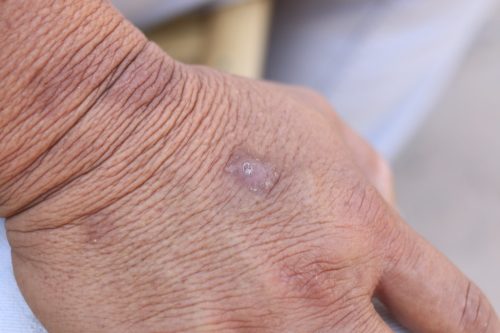
Current studies estimate that more than 8 million Americans live with psoriasis, an autoimmune disease that causes patches of itchy, thickened skin to develop. Though doctors don't know what causes psoriasis to develop in each individual case, one of the known triggers is—you guessed it—a bad sunburn.
For more health news sent directly to your inbox, sign up for our daily newsletter.
6
And worsens other autoimmune diseases.
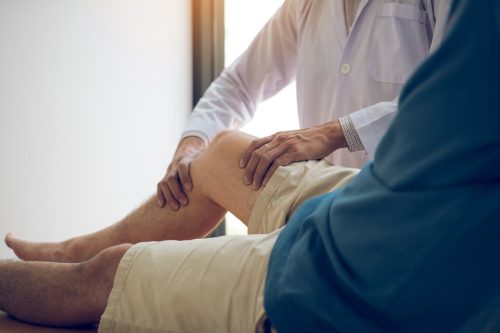
Myositis is an autoimmune disease that weakens the muscles. According to a study conducted by the National Institute of Environmental Health Sciences, women who developed myositis while exposed to high levels of UV rays were more likely to develop an even worse form of the disease known as dermatomyositis, which causes painful rashes in addition to the muscle weakness.
7
It destroys your immune system.

When the skin gets sunburned, the body's supply of Langerhan cells is wiped out. These immune cells are the first line of defense against infections that infiltrate the skin; without them, our body is more vulnerable to illness. And it's not just the sunburnt area that's affected: Studies show that the immune response throughout the body is altered when the skin gets burnt.
8
It can cause a cold sore outbreak.
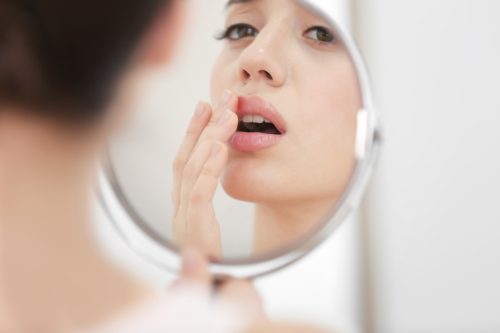
If you suffer from Herpes simplex virus, sitting outside without sunscreen is a very bad idea. As the World Health Organization (WHO) reports, overexposure to sunlight weakens the immune system and in turn causes the virus to act up. One study found that when 38 patients with herpes went outside without sunscreen, 27 developed cold sores; when they put sunscreen on, not a single one had a flair-up. You do the math.
9
It may cause bloating.

Sunburns cause an inflammatory response that signal the body to hold on to fluid. This water retention can get so severe that one woman reported gaining seven pounds after getting a sunburn.
10
It hurts your eyes.

Just like every other part of your body, your eyes are vulnerable to the damaging UV rays of the sun. But the eyes are especially at risk, given that it's nearly impossible to protect them with traditional sunscreen. If you're not careful, you may end up with photokeratitis or photoconjunctivitis. Though reversible, these inflammatory conditions are extremely painful and don't make it fun to blink.
11
It can cause flu-like symptoms.
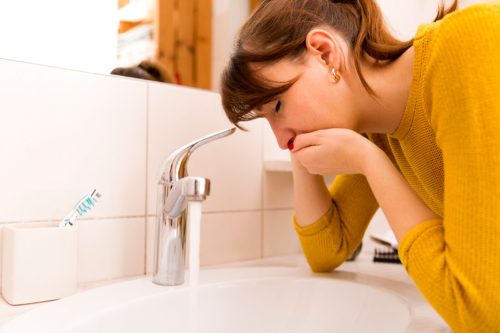
As if the pain from the burn isn't enough, Medical News Today reports that other sunburn symptoms include fever, chills, fatigue, and nausea and vomiting—the same symptoms you'd find yourself with during flu season.
12
It can trigger lupus flare-ups.

Approximately 1.5 million people in the United States suffer from lupus, an autoimmune disease that prompts the body to attack healthy tissue. The disease can become dormant, but one way that people with lupus can bring about symptoms is by getting a sunburn. "Sunlight may trigger a lupus rash and it can also trigger symptoms of joint pain and fatigue," Amita Bishnoi, MD, told Everyday Health.
13
It may cause breathing problems.

Feeling breathless is something of an accomplishment after a long workout, but it isn't something you hope for after napping poolside. One of the not-so-fun side effects of heat stroke is rapid and shallow breathing; should you experience a heatstroke, the Mayo Clinic advises seeking immediate medical treatment.
14
It dehydrates you.

Sunburned skin draws fluid to the surface and hogs it from the rest of the body, according to the Skin Cancer Foundation. This lack of fluid causes you to become dehydrated, which can in turn lead to dizziness and muscle fatigue.
15
It can immobilize you.

In 2017, the story of a runner's horrific sunburn went viral after it left her with blisters up and down her legs. "The healing process has been painful—the burning and throbbing as the blisters have filled was a horrendous experience," UK resident Julie Nisbet told BuzzFeed at the time. "The pressure in my legs when standing/walking has also been agonizing at times." Not only did the blisters leave her bandaged and immobile, but doctors also warned that the second-degree burns could lead to infections down the road if she wasn't careful. Yikes.
16
It may give you hives.
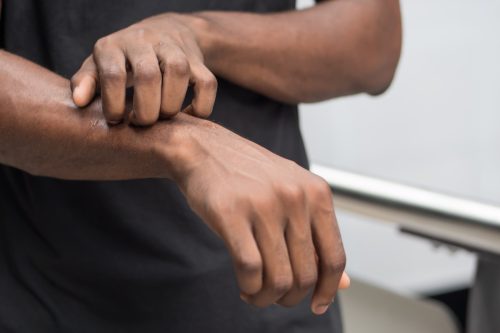
People who take medications like tetracyclines or even certain birth controls may come home from a day at the beach and notice that they're breaking out in hives. This phenomenon, known as solar urticaria, doesn't normally last for more than 24 hours, but it's painful and not aesthetically pleasing, especially during shorts season.
17
It makes acne worse.
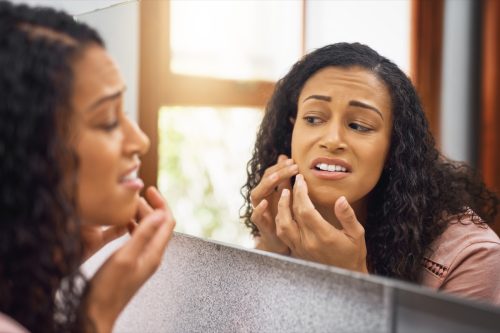
Overexposure to the sun dries out the skin—and for people with acne, this only makes a bad problem worse. Even if you aren't dealing with chronic acne, a bad bout in the sun can increase the body's production of sebum, which promotes breakouts.
18
It can impact fertility.

Too much time in the sun can hurt a woman's chances of getting pregnant. That's because a study published in the Journal of Photochemistry and Photobiology found that too much sun leads to below-average folic acid levels, which has been linked to neural tube defects and miscarriage.
19
It puts a pregnancy at risk.

Most pregnant people know not to avoid tobacco and alcohol while pregnant, but they may not know that getting a sunburn can potentially lead to birth defects, preterm labor, or even a miscarriage, as the experts at PhysicianOne Urgent Care warn.
20
It can lead to a stroke.
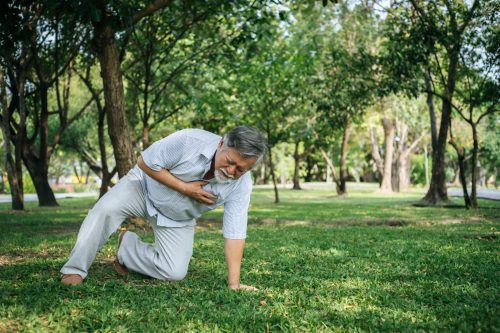
Arguably the most important organ in the body, your heart needs to be protected at all costs. Unfortunately, too much sun exposure means unnaturally high levels of vitamin D, which scientists have linked to a stroke or a heart attack down the line.
Best Life offers the most up-to-date information from top experts, new research, and health agencies, but our content is not meant to be a substitute for professional guidance. If you have health questions or concerns, always consult your healthcare provider directly.





















